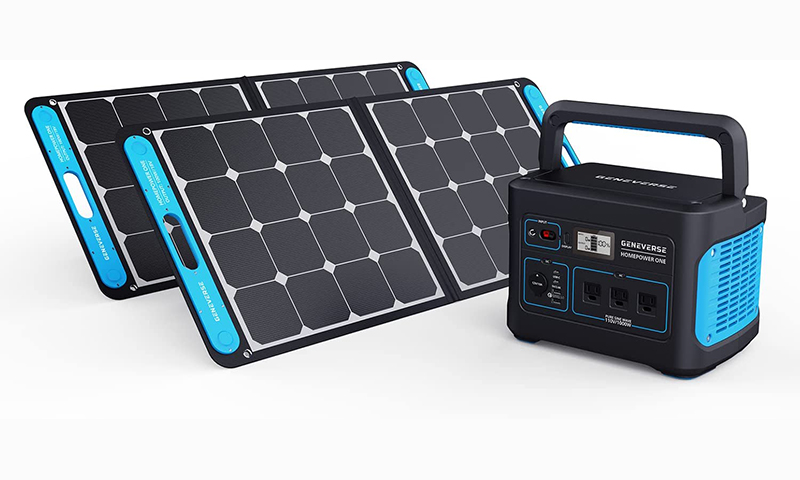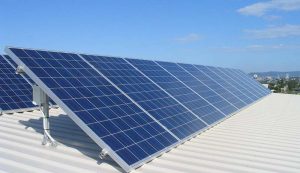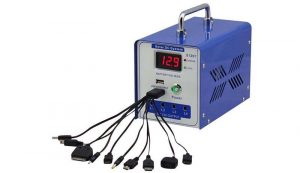
12v vs. 24v Solar Systems: Which is Right for You?
When it comes to choosing a solar power system for your home or business, one of the first decisions you’ll need to make is whether to go with a 12v or 24v system. Both have their pros and cons, and the right choice for you will depend on your specific needs and goals. In this blog post, we’ll take a closer look at the differences between 12v and 24v solar systems, and help you determine which one is the best fit for you.
What’s the Difference Between 12v and 24v Solar Systems?
The main difference between 12v and 24v solar systems is the voltage of the electrical current that they produce. As the name suggests, 12v systems produce a current with a voltage of 12 volts, while 24v systems produce a current with a voltage of 24 volts.
The voltage of a solar system is important because it determines how much power the system can produce, and how efficiently it can do so. Higher voltage systems are generally more efficient and can produce more power, but they also tend to be more expensive and require more complex installation.
Advantages of 12v Solar Systems
12v solar systems have a few key advantages that make them a good choice for certain applications.
Lower Cost
One of the biggest benefits of 12v solar systems is that they are generally less expensive to purchase and install than 24v systems. This is because the components used in 12v systems are less expensive and more widely available than those used in 24v systems.
Easier to Install and Maintain
12v solar systems are also generally easier to install and maintain than 24v systems. This is because they require fewer components and have a simpler electrical setup. As a result, they are often a good choice for DIY projects or for people who don’t have a lot of experience with electrical work.
Advantages of 24v Solar Systems
While 12v solar systems have some attractive features, 24v systems have their own set of benefits that make them worth considering.
Higher Efficiency and Power Output
The main advantage of 24v solar systems is that they are more efficient and can produce more power than 12v systems. This is because the higher voltage of the electrical current allows the system to more efficiently transfer power to the battery or grid. As a result, 24v systems are often a good choice for large homes or businesses, or for applications where a lot of power is needed.
Ability to Run Larger Loads and Appliances
Because they can produce more power, 24v solar systems are also better equipped to run larger loads and appliances. This is especially important for off-grid systems, where the solar system is the only source of power.
Factors to Consider When Choosing Between 12v and 24v Solar Systems
When deciding between a 12v and 24v solar system, there are a few key factors to consider:
Type and Size of Equipment and Appliances to be Powered
One of the main things to consider when choosing between a 12v and 24v solar system is the type and size of equipment and appliances that you need to power. If you only need to run a few small appliances, a 12v system may be sufficient. However, if you need to power larger loads or appliances, or if you have a lot of electrical equipment that needs to be powered, a 24v system may be a better choice.
Distance and Size of Wire Runs
Another important factor to consider is the distance and size of the wire runs that will be required to connect the solar panels to the battery or grid. Higher voltage systems require thicker, more expensive wire to ensure that the electrical current can be safely transmitted over longer distances. This can add to the overall cost of the system, so it’s important to consider the size and layout of your property when deciding between a 12v and 24v system.
Budget and Available Resources
Of course, cost is always a major factor to consider when choosing any type of solar system. 12v systems are generally less expensive than 24v systems, so if you’re working with a limited budget, a 12v system may be the way to go. However, it’s important to weigh the long-term cost savings of a more efficient 24v system against the upfront cost of installation.
Conclusion
In conclusion, both 12v and 24v solar systems have their own set of advantages and disadvantages. 12v systems are generally less expensive and easier to install and maintain, but they are not as efficient and can’t produce as much power as 24v systems. 24v systems, on the other hand, are more efficient and can produce more power, but they are more expensive and require more complex installation.
The right choice for you will depend on your specific needs and goals. If you only need to power a few small appliances and are working with a limited budget, a 12v system may be the way to go. However, if you need to power larger loads or appliances, or if you have a lot of electrical equipment that needs to be powered, a 24v system may be a better choice.
No matter which type of system you choose, it’s important to do your research and work with a reputable solar installer to ensure that you get a system that meets your needs and is installed correctly. With the right system in place, you can enjoy the many benefits of solar power for years to come.

